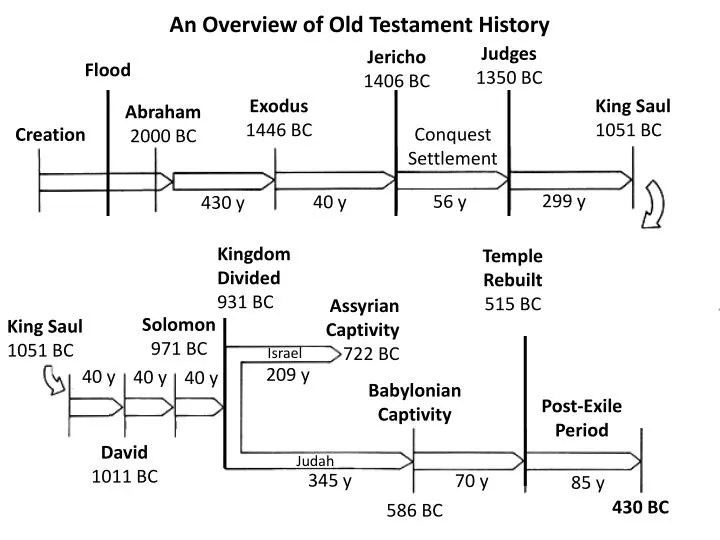
>This final week, we aim to reflect on the Old Testament’s place within the broader context of world religions, exploring its enduring influence and relevance today. We will review key themes, books, and figures studied throughout the course, considering how they contribute to our understanding of the Old Testament as a foundational text not only in Judaism and Christianity but also in its impact on other religious traditions and contemporary thought.
Review of Key Themes
– Creation and Covenant: The Old Testament begins with the stories of creation, setting the stage for the unfolding narrative of God’s relationship with humanity. The covenant theme, especially through Abraham, Moses, and David, highlights the idea of a special relationship between God and His people, with implications for law, land, and identity.
– Exile and Return: The experience of exile and return, particularly in the books of Jeremiah, Ezekiel, and Isaiah, reflects themes of judgment, hope, and restoration, which resonate with universal experiences of loss, longing, and renewal.
– Prophecy and Kingship: The prophetic literature, alongside the historical narratives of Israel’s kings, wrestles with questions of power, justice, and faithfulness, offering critiques and visions that have influenced ethical and political thought beyond the religious sphere.
– Wisdom Literature: Books such as Proverbs, Ecclesiastes, and Job explore the complexities of life, offering insights into human nature, morality, and the pursuit of a good life that speak across cultures and epochs.
Review of Key Books and Figures
– Moses: As the central figure in the Torah, Moses embodies themes of liberation, lawgiving, and leadership. His life and teachings have been foundational not only for Judaism but also for Christianity and Islam.
– David: King David’s complex character and his central role in the narrative of Israel’s monarchy provide rich material for exploring themes of power, flawed humanity, and the promise of an eternal kingdom.
– Isaiah, Jeremiah, Ezekiel: These major prophets offer powerful visions of justice, judgment, and hope that have influenced religious and secular thought on ethics, suffering, and the possibility of transformation.
– Daniel and Zechariah: Their apocalyptic visions contribute to Jewish and Christian eschatologies, influencing ideas about the end times, divine judgment, and the hope for a messianic age.
The Old Testament’s Influence on Later Religious Thought
– The Old Testament has profoundly shaped Jewish and Christian theology, ethics, and liturgy. Its narratives, laws, and prophecies are foundational to understanding these faiths’ beliefs about God, humanity, and the world.
– Through Christianity and Islam, themes from the Old Testament have also influenced Muslim thought, particularly in the shared stories of figures like Abraham and Moses, and in concepts of monotheism, prophecy, and divine revelation.
– Beyond the Abrahamic faiths, the ethical monotheism and prophetic justice found in the Old Testament have contributed to broader philosophical and ethical discussions about the nature of the divine, moral law, and human rights.
Refection on the Relevance of the Old Testament Today
– Ethical and Moral Frameworks: How do the ethical teachings and moral dilemmas presented in the Old Testament continue to inform contemporary discussions on justice, community responsibility, and personal integrity?
– Interfaith Dialogue and Understanding: In what ways can a deeper appreciation of the Old Testament’s themes and narratives contribute to mutual respect and understanding among different religious traditions?
– Spiritual and Existential Inquiry: How do the questions and struggles of Old Testament figures speak to modern spiritual seekers, offering resources for wrestling with the mysteries of suffering, purpose, and faith?
Final Thought
As we conclude our journey through the Old Testament, let us reflect on how its ancient texts continue to speak into our lives and world, offering wisdom, challenge, and hope for all who engage with its enduring legacy.
